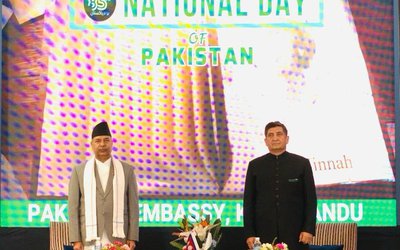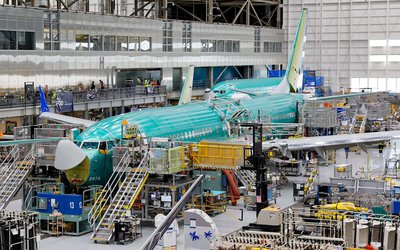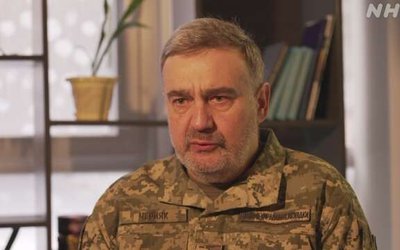
Binayak Shah is not a new name in Nepal's foreign trade sector. Shah has served in different bilateral trade chambers for more than two decades. Now president of the European Economic Chamber of Trade, Commerce and Industry (EEC)-Nepal, and managing director of Airport Hotel, Shah spoke to New Spotlight on various issues related to cooperation between Nepal and European Union, whose member countries have been major destinations for Nepal's exports. Excerpts:
What is the state of Nepal's trade with the European Union?
Nepal's relationship with the European Union is old. There is a lot of potential to increase its trade with the EU. Despite the potential, we still have a lot of things to do on our part. Europe is a developed market in terms of economy and trade and we are trying to get more from Europe. For this, we will have to work more vigorously on our side. The overall relationship is fine, but there is a potential for big expansion and diversification.
Your involvement in work to enhance the bilateral trade with the European countries has been long. How do you look at the role of bilateral trade institutions like yours to increase the trade?
We can play a very important role. Different agencies have different priorities and their own programs. Institutions like ours have a more specific role. The role is to act as a focal point for the promotion of bilateral trade and technology transfer, among others.. We have to work as a catalyst. Our objective is to strengthen the socio-economic ties between Nepal and the member states of the European Union. We initiate ideas and support private sector initiatives. The chamber strives to be a mediator between partners in the internal market and the member states of the European Union and other European countries to enhance Nepal’s business and social interactions with them.
In the recent days, the government of Nepal has been talking about economic diplomacy. What role should bilateral organizations play?
Economic diplomacy plays a very vital role in the promotion of bilateral relations, especially for a country like ours which has been facing resource constraints. If the private sector and public sector join hands, we can do a lot. Although we have been working to pursue the idea of economic diplomacy for quite a long time, I have not seen any visible effectiveness of the program. We have engaged more with rhetoric than with action.
The European Union has been contributing a lot in Nepal's social and economic sectors, what about the trade sector?
There are various dimensions to Nepal-Europe relations. One of the very positive points in our relations is that Nepal has been accorded a high esteem in Europe. People in Europe look at Nepal as a beautiful and mysterious country. Business people and common people in Europe like the Nepalese people. This is a big thing. As we have already developed our relations, doing business is easy. A lot of activities have been going on in social sector, infrastructure and trade promotion activities. The amount of money spent in trade promotion has given very positive results.
What is the present state of trade with countries of the European Union?
Europe is still Nepal's largest trade block. For instance, Europe is a major market for Nepal's carpet. Although carpet industry was started in Nepal only in the 1960s by refugees, it has made a lot of progress in terms of production and export because of the generous support from the countries of the European Union. Because of the design, volume of production, pattern and quality, the demand for carpet continues to grow. Thanks to support given by the European Union in its promotion, carpet is now a full-fledged industry.
As a president of EEC-Nepal, what are your priorities for the coming years?
Our chamber is seven-eight years old. As it is a new chamber, the resources are very limited. We don't get involved in bigger projects ourselves, what we do is we initiate new ideas in terms of trade, tourism and technology transfer. We float the ideas to business communities of both the sides. If the ideas are workable and profitable, the business people join hands. We just support the businesses as a facilitator or coordinator. We develop business and relationship on the basis of needs.
How do you view your organization?
We are fortunate enough that most of our members are market leaders. In terms of volume of trade, they are market leaders in every aspect. They are doing business with Europe in tourism and trade. Whenever we initiate the programs, our members take a lead. In doing business with Europe, we have also been helping to enhance the relations with Europe.
What is the total volume of trade between Nepal and the European Union?
Nepal's total trade with EU in the fiscal year 2011/12 was about Rs. 8,129,079,887.00, accounting for just 13 per cent of the country's total foreign trade. It has been increasing day by day. Similarly, Nepal's import from European Union was Rs. 244161 million in 2011/012.
What are the goods Nepal imports from the EU?
Engineering goods, telecommunication equipment, chemicals and minerals, metals and steels and agricultural products are the major items Nepal has imported from the European Union.
What are Nepal's top commodities?
Nepal's top export commodities to the world in general are readymade garments, woolen carpets and pashmina, in that order.
Which are the top three trading partners for Nepal?
The top three trading partners in the EU are Germany, the United Kingdom and France, followed by Italy, Portugal, Belgium, Netherlands, Spain and Austria. These nine countries make up over 90 per cent of total Nepal-EU trade.
How do you look at the investment from the EU?
The EU has invested a lot in development activities of Nepal. Now, it is pertinent that efforts are made for the development of people centric and social oriented economic activities.
How do bilateral chamber organizations like yours help expand bilateral trade relations with Europe?
Bilateral chambers can play a very important role to enhance the business and social interactions between Nepal and European countries. EEC-Nepal has excellent relationship with well over 70 European/Asian intermediary business organizations (IBOs) and well over 102 Nepalese IBOs, which are more than willing to partner with EEC-Nepal and in any EU funded projects.
How is the possibility to expand support in tourism sector?
Nepal is one of the major destinations for a European tourist. Tourism is the largest industry in Nepal, and the largest source of foreign exchange and revenue. There are a lot of possibilities to tap the European markets. With 8 of the 10 highest mountains in the world, Nepal is a hot destination for mountaineers, rock climbers and people in Europe seeking adventure.
- NEPAL-THAILAND: Joint Business Council
- Apr 13, 2025
- BIMSTEC SUMMIT: Nepal’s Stand
- Apr 11, 2025
- IME GROUP: Expands Into Paper Industry
- Mar 24, 2025
- CPN UML: Instigated By India
- Mar 23, 2025
- ADB’S CHIEF ECONOMIST: Nepal Reduces Poverty
- Mar 11, 2025















